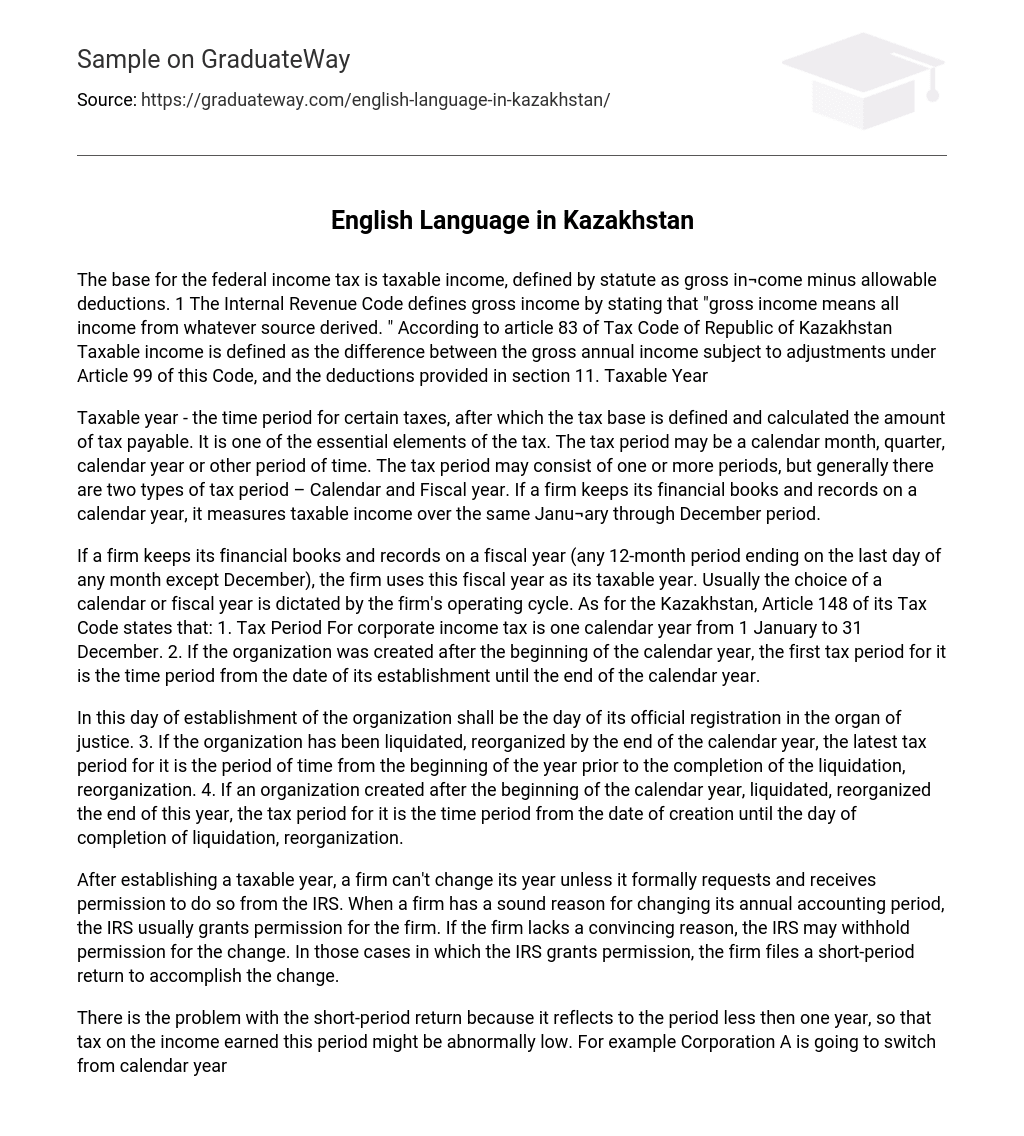The base for the federal income tax is taxable income, defined by statute as gross in¬come minus allowable deductions. 1 The Internal Revenue Code defines gross income by stating that “gross income means all income from whatever source derived. ” According to article 83 of Tax Code of Republic of Kazakhstan Taxable income is defined as the difference between the gross annual income subject to adjustments under Article 99 of this Code, and the deductions provided in section 11. Taxable Year
Taxable year – the time period for certain taxes, after which the tax base is defined and calculated the amount of tax payable. It is one of the essential elements of the tax. The tax period may be a calendar month, quarter, calendar year or other period of time. The tax period may consist of one or more periods, but generally there are two types of tax period – Calendar and Fiscal year. If a firm keeps its financial books and records on a calendar year, it measures taxable income over the same Janu¬ary through December period.
If a firm keeps its financial books and records on a fiscal year (any 12-month period ending on the last day of any month except December), the firm uses this fiscal year as its taxable year. Usually the choice of a calendar or fiscal year is dictated by the firm’s operating cycle. As for the Kazakhstan, Article 148 of its Tax Code states that: 1. Tax Period For corporate income tax is one calendar year from 1 January to 31 December. 2. If the organization was created after the beginning of the calendar year, the first tax period for it is the time period from the date of its establishment until the end of the calendar year.
In this day of establishment of the organization shall be the day of its official registration in the organ of justice. 3. If the organization has been liquidated, reorganized by the end of the calendar year, the latest tax period for it is the period of time from the beginning of the year prior to the completion of the liquidation, reorganization. 4. If an organization created after the beginning of the calendar year, liquidated, reorganized the end of this year, the tax period for it is the time period from the date of creation until the day of completion of liquidation, reorganization.
After establishing a taxable year, a firm can’t change its year unless it formally requests and receives permission to do so from the IRS. When a firm has a sound reason for changing its annual accounting period, the IRS usually grants permission for the firm. If the firm lacks a convincing reason, the IRS may withhold permission for the change. In those cases in which the IRS grants permission, the firm files a short-period return to accomplish the change.
There is the problem with the short-period return because it reflects to the period less then one year, so that tax on the income earned this period might be abnormally low. For example Corporation A is going to switch from calendar year to fiscal year starting from August, to do this it must close previous 7 month. Assume that it generates $10,000 monthly income. In a 12-month year, the corporations’ average tax rate will be 25. 04%, but in taxable year consisting of only 7 months the average tax rate will be only 17. 86%. The difference of 7. 18% will result in a $5,026 of loss for the government.





